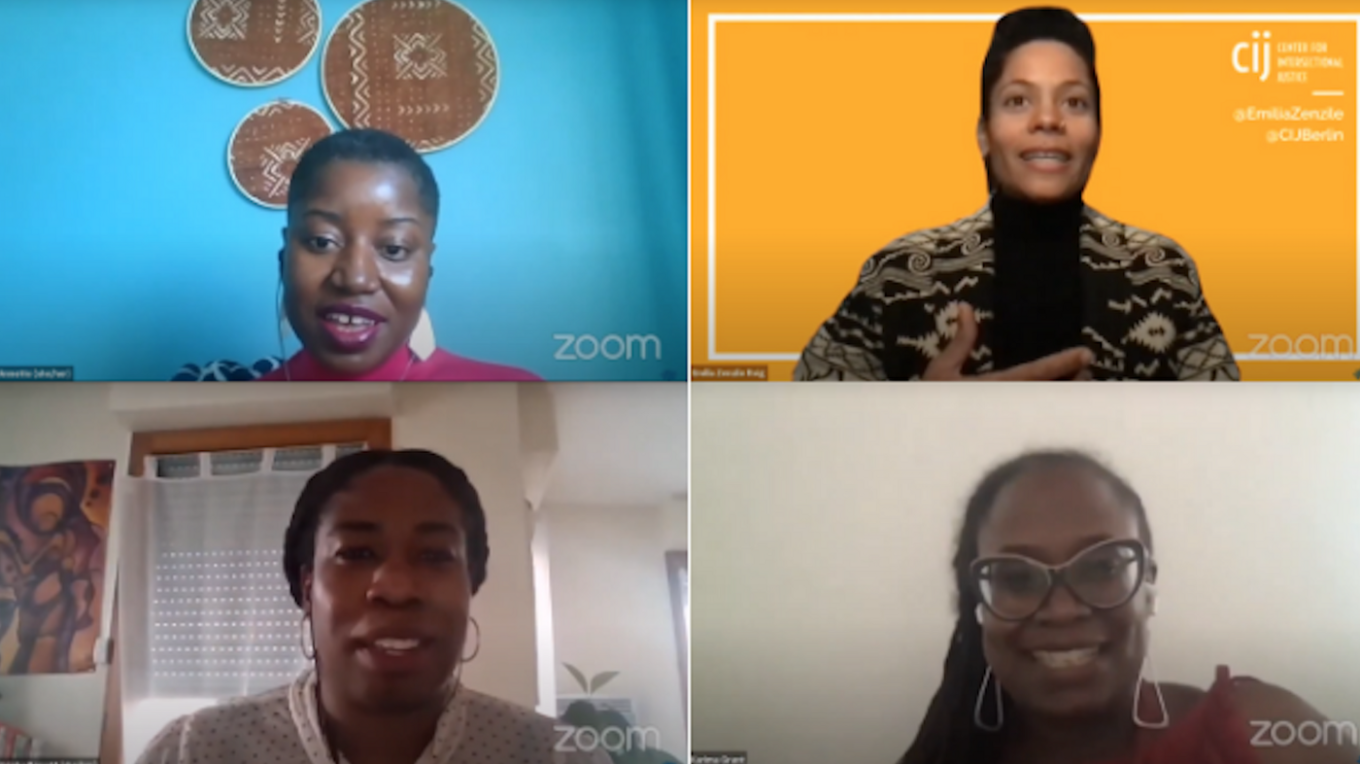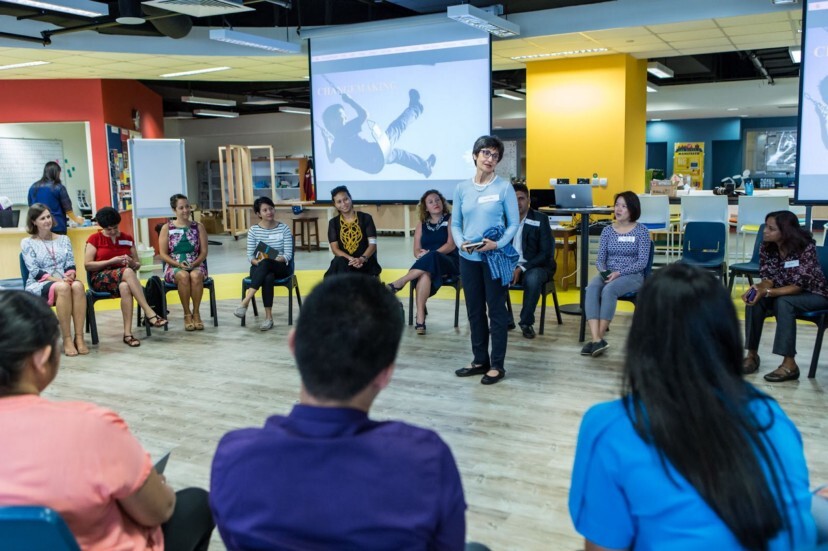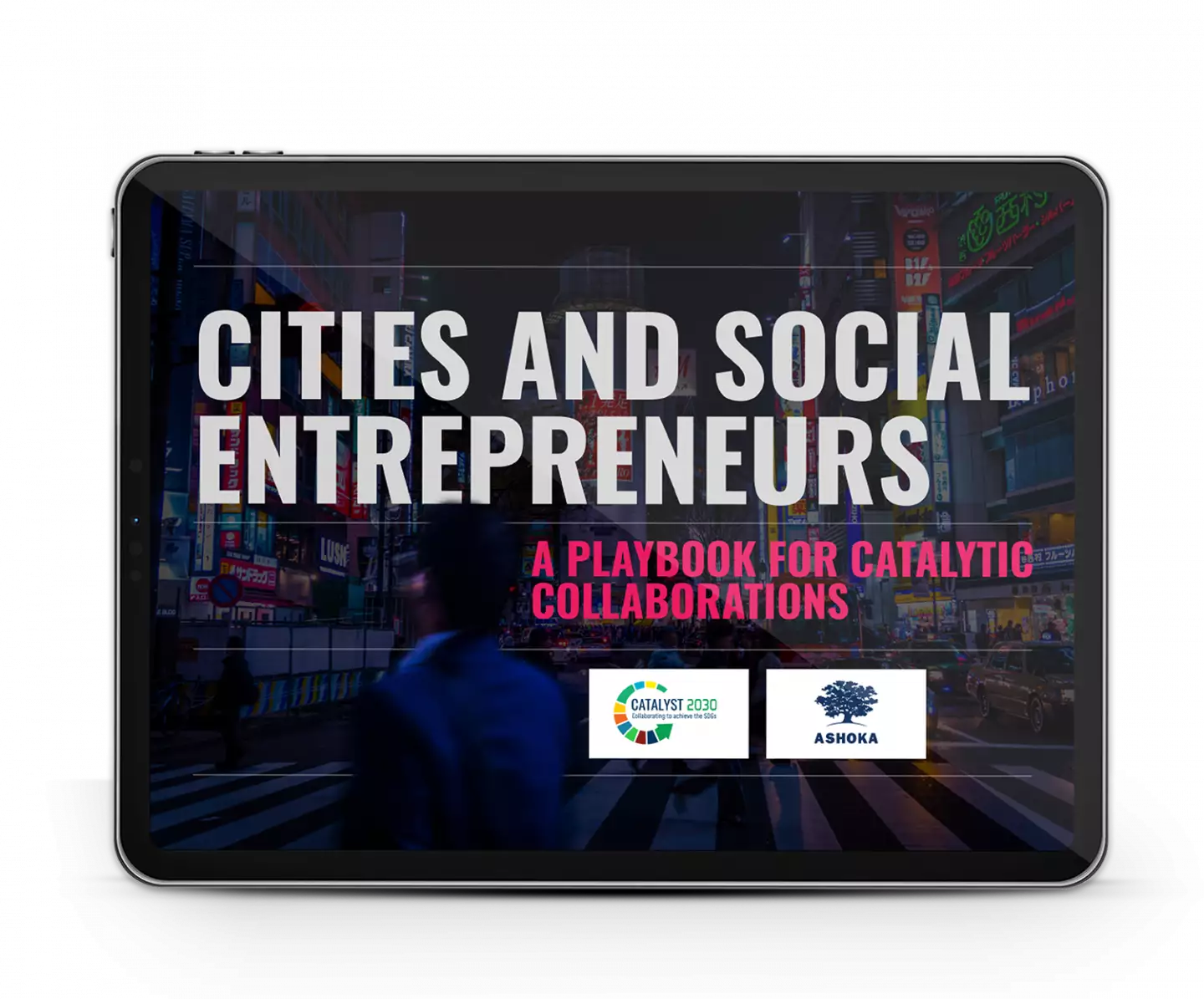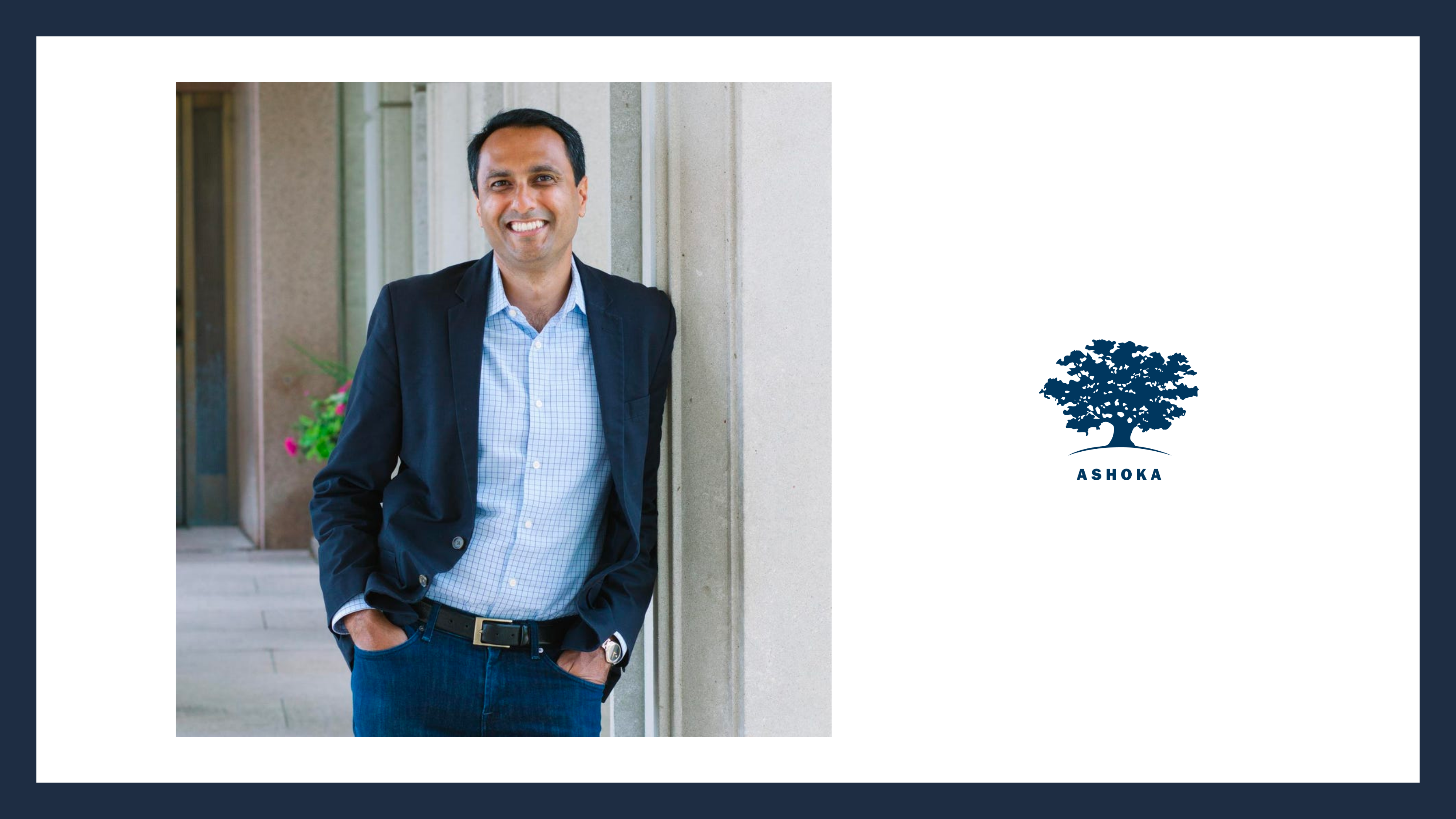
By Hillary Alamene
The diaspora of Black women is a mosaic, not a monolith,” Ashoka’s Yeleka Barrett says. After listening to three Black women changemakers share their heroes — a diverse list including Maya Angelou, Audre Lorde, Winnie Mandela and Gladys Kalema-Zikusoka — Yeleka’s reflection rang especially true. But her words would also apply to the conversation that was just starting.
For the next hour of the Ashoka Changemaker Summit panel, four changemakers — Dr. Emilia Roig (based in Germany), Karima Grant (Senegal), Annette McGee Johnson (U.S.), and Yeleka Barrett (France) discussed intersectionality, race, and Black women in social movements — and how we can all be allies in building a more equitable world. Watch the full discussion here.
Below are a few of our takeaways:
Intersectionality has many meanings
The term “intersectionality,” coined by Kimberlé Crenshaw in the 1980s, has been galvanized in various ways by people demanding change.
“Intersectionality is a tool, a movement, a concept, and a perspective that makes power and privilege visible,” Emilia explains, by “exposing the hierarchies all of us are embedded in.” The term helps us recognize different sources of oppression and name the overlapping and intersecting identities at play in how individuals experience the world.
Through intersectionality, we can address “discrimination within discrimination” and “empower minorities within minorities,” Emilia says. We can “recenter and universalize the experiences” of minority groups. And we can change the preexisting paradigm built around a single standard — most often rooted in whiteness, wealth or ableism.
Intersectionality is about individuals…
On a personal level, Karima, the founder of ImagiNation Afrika, says she’s constantly asked to “step through the lens of being a changemaker with one identity.” It’s challenging to bring her whole, global self. As a leader, she’s constantly asked to identify the “single transformational lever” that could push her forward in every community rather than recognizing the depth of intersectionality.
The notion of intersectionality in education or social justice is often dismissed on the African continent, Karima says. Through ImagiNation Afrika, she works to promote critical thinking and transforms how African children perceive themselves and their ability to contribute to larger change. Embracing intersectionality in her learning model, Karima explains, means “imagining new ways of being, new ways for children to become empowered.”
..and it’s about institutions
Colonial funding structures continue to exert influence on the African continent. Most funding goes towards international agencies based in the Global North. Structural barriers, Karima says, prevent people — especially Africans — from guiding decisions. “It just comes down to sometimes even being present,” she says. “when we are not present because we can’t get a visa, when we can’t get into a country and be in [those] spaces discussing how [social] change can happen.”
“The solutions really lie with people. They are quite aware of what needs to be done and what needs to change, and they just need he resources to do it,” Annette adds. “You’re having people coming from the outside without the necessary expertise, but they have been given the mandate to formulate solutions.” In this result-driven system, she says, outcomes are expedited rather than unfolding organically, and perpetuate corrupt systems.
Intersectionality isn’t just a concept, it’s a call to action
Intersectionality can be mobilized. It offers a platform for powerful demonstrations and protests, because collective action requires us to understand how experiences of dehumanization are always connected. As Martin Luther King, Jr. famously put it: “Injustice anywhere is a threat to justice everywhere.”
Intersectionality also calls us to see that single communities are not monolithic. Colorism, class prejudice, and homophobia are examples of how some members of Black or Muslim communities experience particular mistreatment within their own community, even though all oppression is linked — often in complex ways.
Black women deserve accountability
Black women have provided the foundation for many large movements to emerge, like Black Lives Matter or #MeToo, Emilia notes. In the US, the success of the Democratic party in any election has been contingent upon minority support, especially from the African American community. Yet Black women have received little appreciation or attention for their leadership.
Rather than focusing on the achievements themselves, Karima says, we should focus on the accountability we owe the people who put in the work. Black women’s efforts have put society in a position to make positive changes, she says. Now it’s important to ask: “do we want to be accountable to Black women?”
Lessons for aspiring allies
Annette encourages those wanting to be allies to the Black women around them to pay attention to how conversations within a room are led, facilitated, and formatted. Upholding a particular standard dismisses the opinions of those with much to offer. Karima suggests self-reflection: ask how you are listening to Black women and learn to receive criticism in order to grow.
Self-care is a necessity for social justice work
Many Black women experience the burden of exceptionalism, feeling as though they must play the role of a savior or superhero within their households, workspaces, and communities. In turn, the panelists leave Black women with a reminder to prioritize self-care — a form of restoration that looks different for everyone.
For Annette, this means creating a safe space, seeking balance, and doing things she loves like sewing and taking walks. For Emilia, self-care means not forcing herself to fit into spaces unwilling to accommodate or cater to her needs. For Karima, self-care means being mindful of our current circumstances — we are not “virtual creatures,” she reminds us, and we don’t need to pretend that everything is normal. Self-care is a process that requires practice.
-
About the changemakers:
Ashoka Fellow Dr. Emilia Roig is the Founder and Director of the Center for Intersectional Justice in Germany, which aims to protect marginalized communities in Europe.
Ashoka Fellow Karima Grant is the Founder and Director of ImagiNation Afrika based in Senegal, an organization changing the ecosystem of learning for young children.
Annette McGee Johnson is the Global Legal Director of Ashoka, as well as the Founder and Director of Monjae Inc, a platform that supports entrepreneurs from the African diaspora through their storytelling experiences.
The moderator, Yeleka Barrett, is a Senior Partnership and Grant Manager at Ashoka. She has a track record of designing, implementing, and connecting engagements with the corporate sector and social entrepreneurs with a specialty in the health sector.


